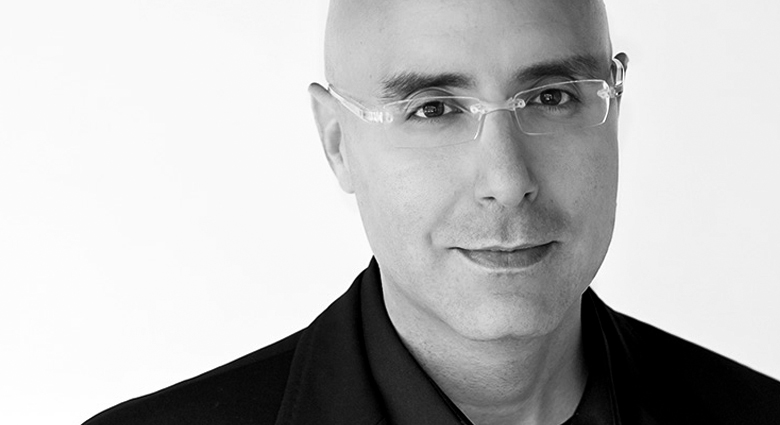The January 2012 cover story of Fast Company magazine was all about Generation Flux. You’ve heard of Gen X, Gen Y and more, but what is Generation Flux? Our business world has been through some tumultuous times: Recessions, financial meltdowns, the massive disruption of technology, natural disasters, nations defaulting on their debt, the Arab Spring, the Occupy Movement and much more. For every catastrophe and massive shift emerge new breakthroughs and advancements. During these past few years, we’ve also seen some of the most interesting companies flourish and grow (Apple, Facebook, Lululemon, Method, Amazon, Twitter and more), we’ve seen medical advancements at an unprecedented pace and the introduction of new technologies that will forever change our future (think about how Instagram sold to Facebook for one billion dollars and the fact that this company only had twelve employees and had been in business for less than three years when the acquisition happened). In short, this is a time of flux… uncertainty… purgatory. This makes it hard to chart a course – let alone pull together a five-year plan. Have you taken a look at your investment portfolio recently? Do you honestly think that there is a reliable long view out there? It is with this sense of pandemonium that Fast Company has dubbed us – all of us – Generation Flux.
GenFlux - a mindset that embraces instability/enjoys recalibrating business models/careers @mitchjoel
“To thrive in this climate requires a whole new approach,” states the Fast Company article, This Is Generation Flux: Meet The Pioneers Of The New (And Chaotic) Frontier Of Business. “… some people will thrive. They are the members of Generation Flux. This is less a demographic designation than a psychographic one: What defines GenFlux is a mind-set that embraces instability, that tolerates - and even enjoys - recalibrating careers, business models, and assumptions. Not everyone will join Generation Flux, but to be successful, businesses and individuals will have to work at it. This is no simple task. The vast bulk of our institutions - educational, corporate, political - are not built for flux. Few traditional career tactics train us for an era where the most important skill is the ability to acquire new skills.”
Are you freaked out yet?
Reid Hoffman must be some kind of oracle at this, particular, time in the history of business. Hoffman co-founded LinkedIn – the very popular online social network for business professionals – in December 2002. With close to 140 million members in over 20 countries, LinkedIn’s IPO in May of last year made Hoffman a billionaire. Currently, he serves as Executive Chairman of LinkedIn and is a partner at Greylock Partners – a very popular venture capital firm. Hoffman’s passion is understanding how these connected networks that we’re all creating everyday as we connect, friend, like, link and follow one another creates new business opportunities. He also believes that in these highly networked times, we have to start thinking differently about business and the work that we’re doing. Along with Ben Casnocha (an award-winning entrepreneur and author), they published the business book, The Start-up of You: Adapt to the Future, Invest in Yourself, and Transform Your Career (Crown Business February 2012).
“I was fascinated when I met people who were entrepreneurial but didn’t want to necessarily start their own companies,” said Casnocha via Skype. “That was my arrival at The Start-up of You thesis. Reid had been thinking about the idea of everyone as a business of themselves. In many ways, the LinkedIn vision is a manifestation of the intellectual idea in the book. We had both been thinking about these ideas independently… There is a convergence of two key trends happening now. First, is a trend toward entrepreneurship. People are looking to people like Steve Jobs and other business icons as the great heroes of the world. Secondly, globalization, technology disruption, unemployment, job crisis and this idea that the labor market is changing are making people feel less secure. This lack of security is causing people to ask the question: ‘what do we do about it?’ So, people are looking towards the hot trend of entrepreneurship as the answer. While I think that people should start more companies, the reality is that not everyone is cut out for it. What can we do? We can learn from these dynamic entrepreneurs and figure out how to apply those lessons of success to our lives and careers.”
ppl no longer look for job security/a pension but rather follow Silicon Valley entrepreneurs @MitchJoel
That is what the start-up of you looks like. We no longer live in a world where young people are looking for job security and a pension (there are no gold watches in their future), but rather governing their careers and guiding their future by the lessons learned from some of Silicon Valley’s most successful entrepreneurs and innovators. Famed business and marketing leader, Seth Godin, has a well-worn aphorism: “the safest thing you can do is be risky… and the riskiest thing you can do is be safe.” It turns out that it was a prophetic statement about our workforce (both the newcomers and the veterans). As more and more people leverage the thinking of The Start-up of You to build their own, powerful, networks, turn to proactive risk taking (and don’t see it as a risk, but rather an opportunity) and get very adaptive to the economic realities of a world where big business is no longer the preferred and revered career path.




.png)




What Did You Think?